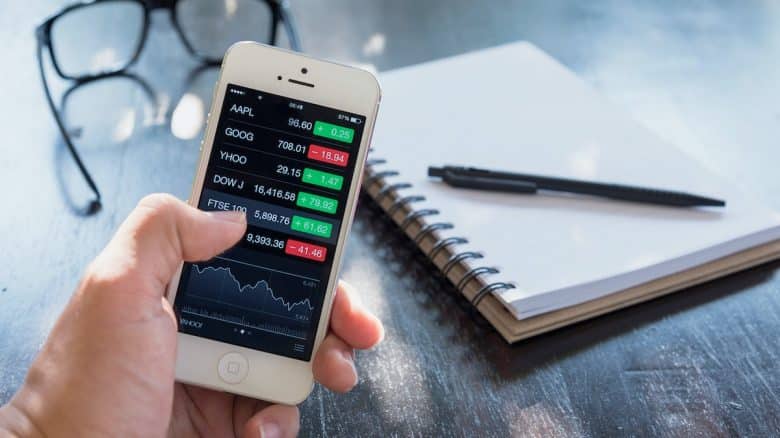If you’re starting out in the trading world, you’ll soon learn that the stock market is complex and difficult to predict. Paper trading platforms are essentially simulated stock exchanges that allow users to practice buying and selling stocks without putting real money at risk. There are numerous paper trading apps and platforms available, so doing some research to find one that best suits your needs is essential. If you’re looking to become a paper trading broker, there is a way to accomplish this. This article will help you find platforms with a wide variety of stocks and assets to trade, as well as tools to help you practice.
What Is Paper Trading?
Paper trading is a way to get experience trading stocks without risking any real cash. This virtual environment is distinct, and any moves or trades you make here will have no impact on the real stock market. With paper trading, you can practice investing without risking any real cash by simulating trades based on hypothetical market conditions. It allows you to test your trading strategies in a real-world setting to determine their success or failure without putting your money at risk.
The term “paper trading” or “paper trade” originated when trading was done physically at exchanges rather than through an electronic platform. Before computers were widely available, traders and investors had to manually compare their trading strategies and ideas with the price movements of stocks after each trading session. Thanks to technological advances, traders can now paper trade using fully electronic stock market simulators.
What is a Paper Trading App?
Paper trading apps are platform simulations that enable traders to buy and sell stocks using virtual money. The name is a few decades old, and there is no “paper” involved because the process takes place online. Paper trading is frequently used interchangeably with demo accounts.
Most online brokers will provide paper trading capabilities that are identical to their actual services. These platforms are essentially used to practice trading while using the live market as a reference point. Although no real money is at stake, users can use paper trading apps to trade their trade records, analyze their profits and losses, and develop strategies. Simply put, these handy little tools are extremely useful not only for learning the ways of the market but also for improving existing strategies for experienced day traders. Paper trading apps should be used in conjunction with broker educational materials such as videos, tutorials, workshops, and so on. Trading is all about research, and paper trading is a big part of that.
Should I Consider Using a Paper Trading App?
Paper trading apps are typically free or, at the very least, available for a free trial period. There is no real risk in paper trading, so you have nothing to lose! Still, let’s go over some of the advantages and disadvantages of paper trading apps.
The Advantages of Paper Trading Apps for Beginners
From the standpoint of a beginner, there are numerous advantages to using paper trading apps.
These advantages include:
- Beginners have the opportunity to practice trading without risking any of their capital. This is especially important for those who are new to trading because you will need to conduct research and practice new strategies before entering the real world of trading.
- Paper trading can instill confidence in newcomers by providing a secure environment in which to trade without risking actual capital.
- Paper trading is typically free, so newcomers will not have to spend any money to learn more about investing in the stock market. It should be noted that many of the best paper trading accounts only provide free trials.
- Paper trading allows for an easy transition from simulated trading to live-to-trade. Many brokers will provide discounts or bonuses to paper traders who open a real account.
- Paper trading apps are clearly very useful for beginners who want to learn how to trade without risk.
Paper Trading for Experts
Paper trading can benefit people of all skill levels, not just beginners. Apps for paper trading can also be very useful for professionals.
Here are some of the reasons:
- Because there is no risk involved, paper trading is ideal for traders who want to develop and test new strategies.
- Paper trading can be used for weeks or months to learn about a new market strategy.
- Paper trading is a risk-free way for traders to hone their craft and gain experience.
Limitations of the Paper Trading App
While paper trading apps are fantastic and extremely useful, there are a few drawbacks.
- Among these limitations are the following:
- Market correlation is a problem because paper trading fails to account for the overall market’s impact on specific securities.
- Slippage and low commission rates can also be issues. When trading with real money, there are costs involved in the form of commissions and spreads. This is not properly reflected in paper trading platforms.
- Paper trading is extremely safe, but it comes with a lack of experience in emotional control. Successful traders understand the importance of mastering their emotions before venturing into the real world of trading.
- Even with these limitations in mind, it’s critical to recognize that paper trading apps are risk-free and extremely useful in a variety of ways.
Which Is Best for Paper Trading?
#1. eToro
In general, eToro is the most popular paper trading platform on the market right now. eToro, a global online brokerage, has over 24 million users in 140 countries, including the United States and the United Kingdom. You can use the eToro demo account once you’ve signed up for an account on the platform’s website or mobile app (available for iOS and Android). Furthermore, no money is required to access the demo account.
There are numerous reasons to choose eToro as your go-to paper trading app. To begin, the brokerage provides you with a $100,000 demo balance. Second, eToro reflects real-time market conditions.
Lastly, eToro’s easy-to-use interface makes it easy to switch between your demo account and your real account. On the demo account, you can trade over 2,500 stocks, 250 ETFs, and 60+ cryptocurrencies.
Users can also test out stock trading vs. forex trading in a risk-free demo environment that simulates live trading conditions in the financial markets.
When you’re ready to trade in real-time, eToro accepts credit/debit cards, e-wallets, and bank transfers. eToro is also a social trading platform that helps new traders by giving them a number of tools for beginners.
Through “Copy Trading,” users can copy thousands of experienced traders’ trades and test out investing strategies without risking money. Because eToro is an exchange, new investors can copy the trades of more experienced investors. eToro is a global exchange that is heavily regulated by global regulatory bodies in the United States, the United Kingdom, and several other European countries.
#2. Webull – Trading Paper Using a Mobile App
Many paper trading platforms are available on iOS and Android, as mobile apps have become the new norm for online brokerages. Suppose you live in the United States and are looking for the most popular stock trading app. Webull gives demo users $1 million in pre-loaded funds. With your virtual funds, you can invest in US stocks, cryptos, ETFs, and penny stocks.
Although Webull does not charge a commission on stock options, there are other fees that must be paid. On your standard account, a monthly charge of $1 is requested.
Most importantly, there are no broker fees on deposits with Webull. Accessing the Webull promotional scheme will cover the $1 monthly charge. Webull offers free shares of stock worth $2.50 to $250 after successfully opening an account.
If you invest at least $100, the value of the free shares increases from $8 to $1600. This is something you can get after buying stocks with a credit card or any of the other ways Webull lets you pay.
#3. XTB – No Deposit Paper Trading on 2,100+ Markets
With XTB, you can trade CFDs on over 2,100 markets around the world. XTB traders can use CFDs to buy and sell forex, stocks, cryptocurrencies, commodities, indices, ETFs, and more. This means that traders can easily go long or short on any position and gain access to leverage of up to 500:1 for forex and 10:1 for stocks.
Since XTB doesn’t have a minimum deposit requirement for opening a new account, its paper trading account is one of the easiest to use. The demo account, which can be reset at any time, gives you access to all of XTB’s markets and trading tools. It’s a good choice for traders who are trying out CFDs for the first time or who want to use XTB to trade in new markets.
This broker has a trading platform called xStation 5 that can be used on the web and on mobile devices. It has useful tools like price alerts, advanced charting tools, and technical studies. XTB’s paper trading account can be used by traders to test new technical trading strategies in xStation 5.
#4. TD Ameritrade – Practice Advanced Strategies on a Demo Account
TD Ameritrade has more than 11 million users who have signed up. Its desktop, online, and mobile apps offer advanced paper trading strategies.
Thinkorswim is TD Ameritrade’s advanced web-based trading software. Thinkorswim software gives you trading tools that you can change to test strategies and make complicated trades.
Thinkorswim’s paper trading platform pre-loads demo accounts with $100K. Thinkorswim paper trading software gives people who want to trade in the equity and derivatives markets access to the tools and features they need. The platform has a lot of tools for reading charts and doing technical analysis. Most of these tools are also available on the paper trading app.
If you choose to use the standard mode, TD Ameritrade will not charge you any trading commissions on US stocks or ETFs. The only disadvantage is that users must deposit $500 in order to access real-time pricing quotes.
#5. Interactive Brokers – Paper Trading Platform for Global Market Access
Access to a wide range of securities at reasonable commission rates is one of the many features of Interactive Brokers’ trading platform. You can buy assets all over the world by using any of Interactive Brokers’ 135 global markets.
The platform has a lot of tools for reading charts and doing technical analysis. Most of these tools are also available on the paper trading app. Importantly, Interactive Brokers lets you practice long-term investments like futures, forex, ETFs, index funds, and options paper trading.
Interactive Brokers offers commission-free trading on all US stocks when using the standard mode. Join the Interactive Brokers paper trading simulator to get a $1 million account that is already set up.
Can I Paper Trade for Free?
Paper Trade offers free virtual BTC/USD trading. If you want to go further, you can begin trading with full access to over 300 stocks and 100 cryptocurrencies! With a subscription to Paper Trade Premium, you can practice trading stocks and cryptocurrencies. A 7-day trial is available for free. After the trial period, the monthly fee is only $4,99.
Is Paper Trading Good for Beginners?
Paper stock trading helps beginner traders practice real-world trading strategies without investing real money. The best part is that paper trading trades have no effect on the actual market, so traders don’t have to worry about losing money or making risky decisions.
How Do I Start to Paper Trade?
You can begin with any platform of your choice. However, trading without a strategy will not help you achieve your goals. You must treat your paper trading account as if it were a real account. Start with a realistic amount that you are comfortable investing in reality. When you finish a trade, make a note of everything, including why you placed the trade, the exit level, the outcome of the trade, and how you could maximize profit or limit your loss. These will assist you in becoming a more confident trader.
Conclusion
In recent years, paper trading has become more popular because there are so many online trading accounts and platforms. Almost all brokerages now provide you with the tools you need to practice trading in a virtual, simulated environment designed to help you learn how to trade and backtest your trading strategies. Although the data feeds on these paper trading platforms simulate market movements, they are not always real-time. You should keep this in mind before using the platform.
Related Articles
- BEST CRYPTO EXCHANGE WITH LOWEST FEES: Top 11+ (Updated)
- Importance of Paper Trading in Financial Markets
- Stock Trading Business: How to Start a Stock Trading Business
- HOW TO BECOME A DAY TRADER: Step-by-Step Guide
- HOW TO DAY TRADE: Complete Guide to Day Trading for Beginner






